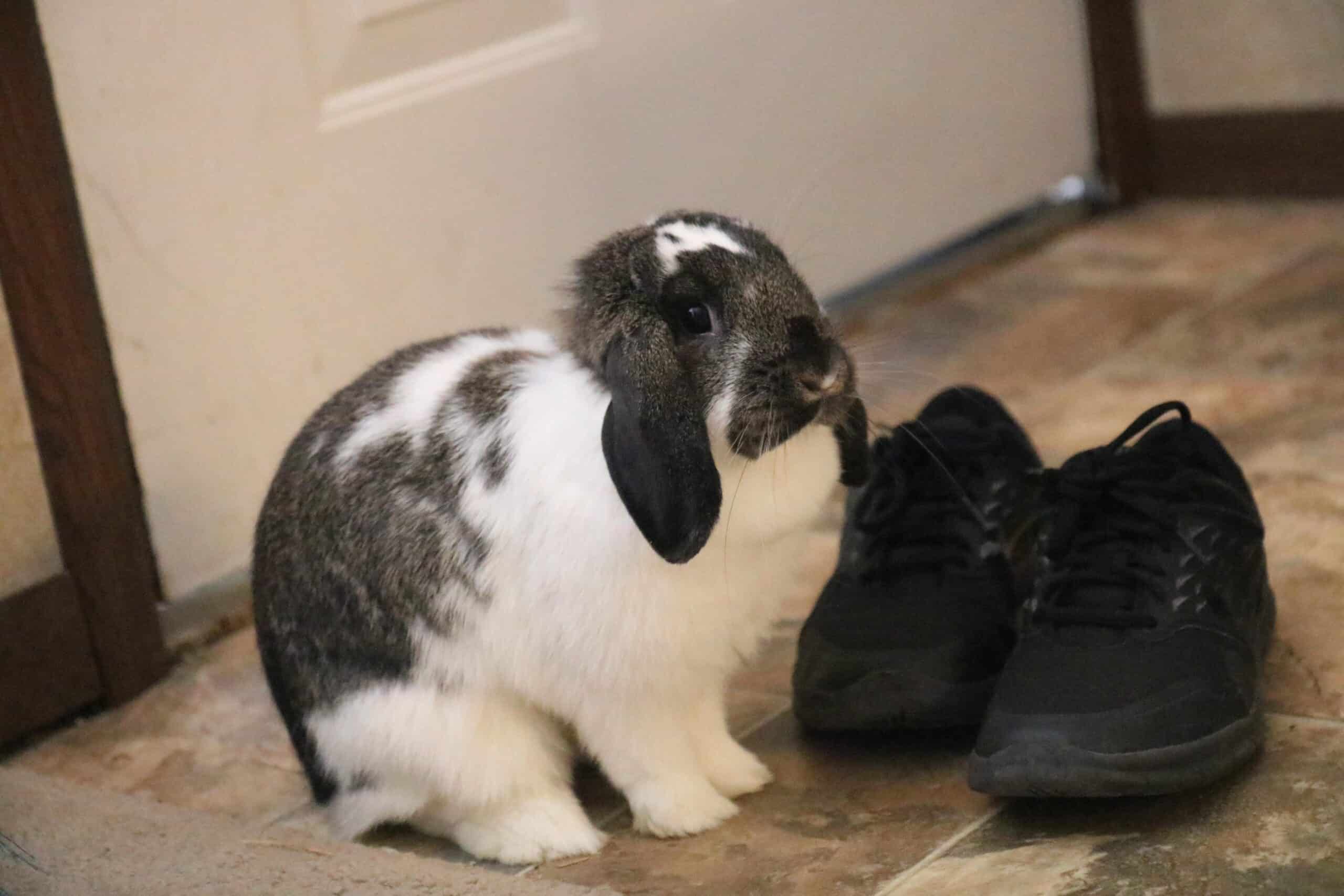If you’re considering getting a 1 year old rabbit as a pet, you’re in for a treat! Rabbits can make wonderful companions, but they also require special care in order to stay healthy and happy. In this article, we’ll cover everything you need to know about 1 year old rabbits – from diet and exercise, to grooming and housing. We’ll also provide tips on how to ensure your rabbit is healthy and well-socialized. By the end of this article, you will be well-equipped to take on the responsibility of caring for a 1 year old rabbit.
What to Expect from a 1 Year Old Rabbit
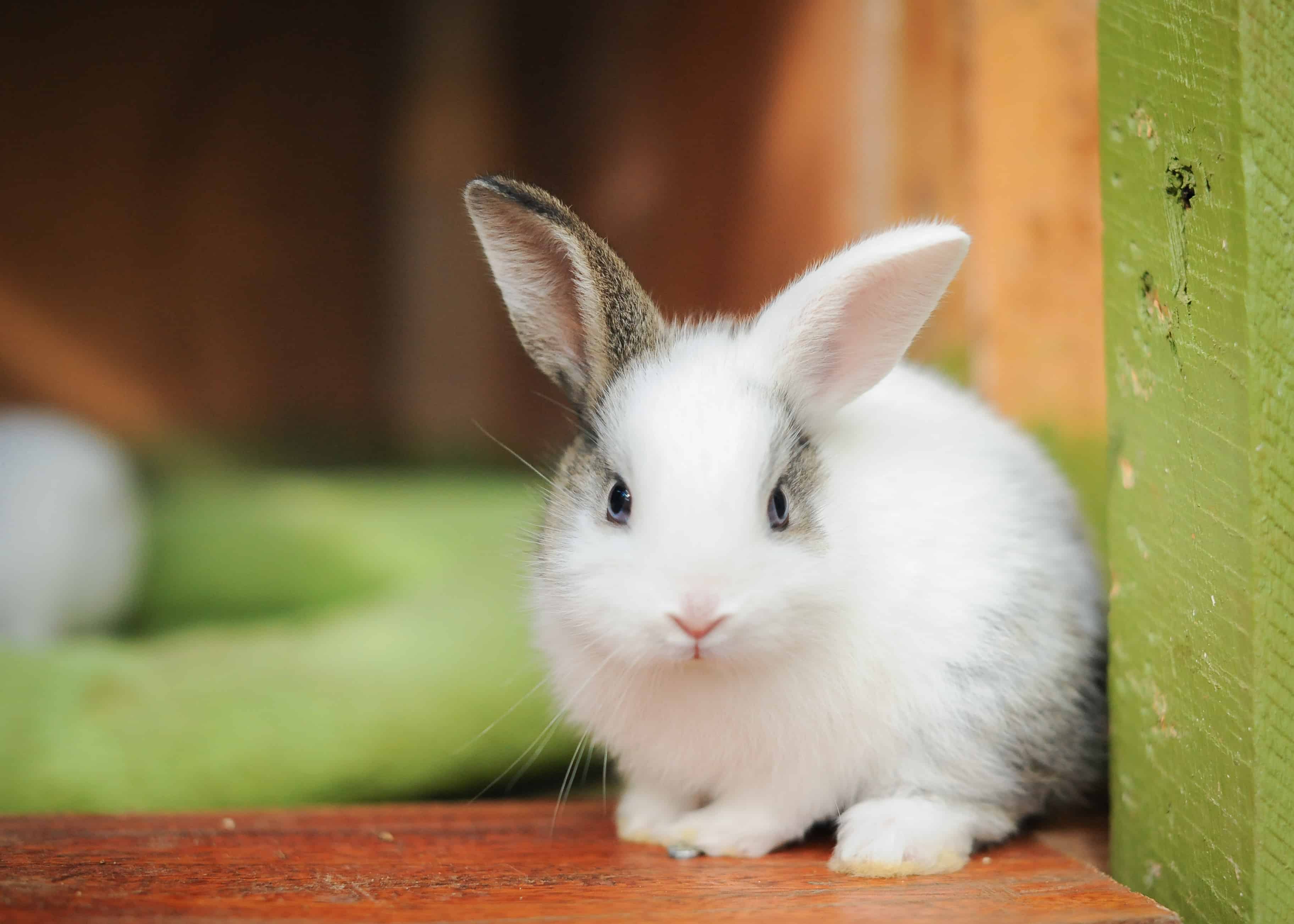
| Behavior | Description |
|---|---|
| Health | A 1 year old rabbit should generally be healthy and active. If a 5 month old rabbit is taken to the vet for regular checkups, any potential health issues should have already been addressed. |
| Personality | A 1 year old rabbit should be well adjusted, having developed their own unique personality. It is important to remember that every rabbit is different and so the personality of each individual rabbit may differ. |
| Behavior | At 1 year old, a rabbit should be more comfortable with handling, playing, and socializing with people. They will likely be more active and playful than at 5 months old, and may require more exercise and stimulation. |
| Diet | A 1 year old rabbit should still be fed a healthy diet of hay, fresh vegetables, and a small portion of pellets. Treats should still be given in moderation, as rabbits tend to gain weight easily. |
| Housing | A 1 year old rabbit should still be provided with a safe, comfortable, and spacious living space. A large cage or a hutch with an attached run should be provided, as well as plenty of toys and activities for stimulation. |
Differences Between a 1 Year Old and a 5 Month Old Rabbit
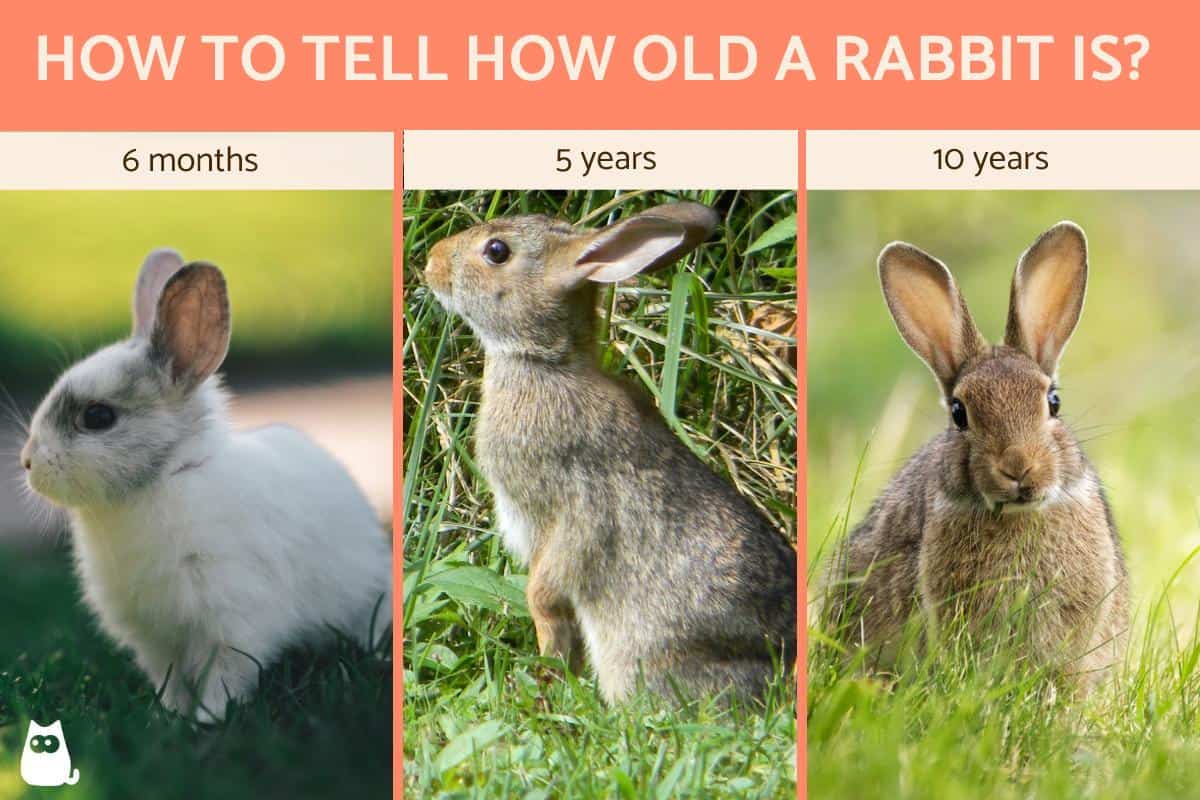
Size: A 1 year old rabbit is typically much larger than a 5 month old rabbit.
- A 1 year old rabbit can weigh up to 4 pounds, while a 5 month old rabbit typically weighs between 1 and 2 pounds.
- A 1 year old rabbit can reach up to 14 inches in length, while a 5 month old rabbit typically measures between 7 and 10 inches.
Development: A 1 year old rabbit is fully grown and has reached sexual maturity, while a 5 month old rabbit is still growing and developing.
- A 1 year old rabbit is able to reproduce and will have fully developed teeth, fur, and body parts.
- A 5 month old rabbit is still growing, and may not have developed all of its teeth, fur, and body parts yet.
Behavior: A 1 year old rabbit will display more mature behavior than a 5 month old rabbit.
- A 1 year old rabbit will typically be more independent and can handle being handled more than a 5 month old rabbit.
- A 5 month old rabbit will still be quite dependent, and may be more timid and skittish than a 1 year old rabbit.
Health Considerations for a 1 Year Old Rabbit
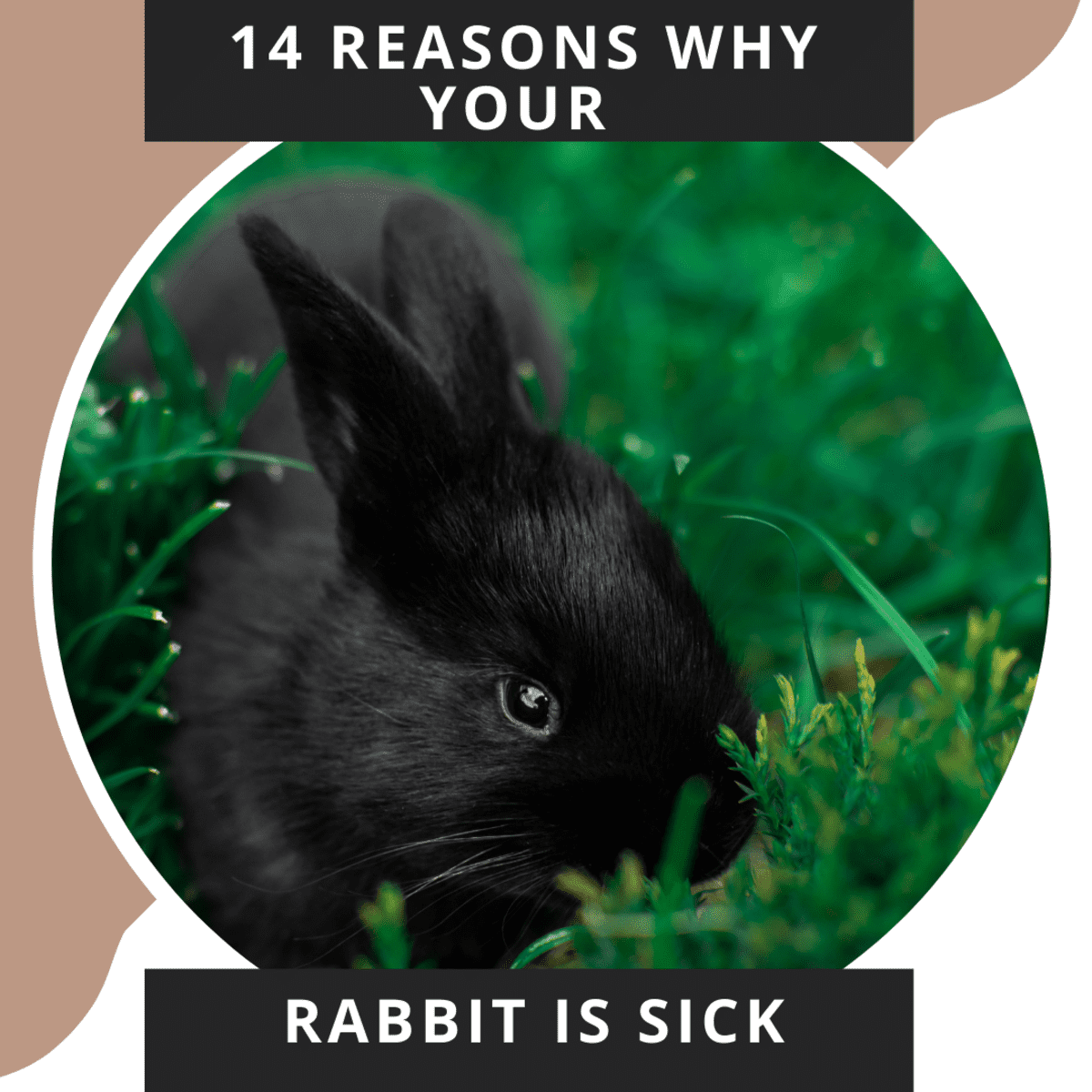
Rabbits are generally healthy animals, though they can suffer from various medical conditions that can be prevented with proper care. In order to keep your 1-year-old rabbit healthy, it is important to provide them with regular veterinary check-ups, a balanced diet, and plenty of exercise. Additionally, providing your rabbit with the appropriate vaccinations, parasite control, and dental care is essential to their long-term health.
Vaccinations
Rabbits should receive their core vaccinations every year to protect them from common viruses, such as myxomatosis and rabbit hemorrhagic disease. In addition, your vet may recommend additional vaccinations, depending on your rabbit’s risk factors and lifestyle. It is important to follow your vet’s recommendations for proper vaccination.
Parasite Control
Your 1-year-old rabbit should be regularly dewormed and treated for fleas and other parasites. While fleas and mites can be treated with topical medication, internal parasites, such as roundworms and coccidia, must be treated with oral medication. Your vet will be able to advise you on the best parasite control regimen for your rabbit.
Dental Care
Rabbits’ teeth grow continuously, so it is important to have them checked by a vet on a regular basis. If your rabbit’s teeth are not properly aligned, they can cause pain and discomfort. To prevent this, your vet can trim your rabbit’s teeth and provide you with instructions on proper dental care at home.
Diet
Your 1-year-old rabbit should be fed a balanced diet that includes hay, fresh vegetables, and a small amount of high-quality pellets. Avoid giving your rabbit any sugary treats, as these can lead to health problems. Additionally, fresh water should always be available for your rabbit to drink.
Exercise
Rabbits need plenty of exercise to stay healthy and fit. Providing your rabbit with a safe, enclosed area to play and explore will help them stay active. Additionally, you can offer your rabbit toys, tunnels, and other items to keep them entertained.
Socialization of a 1 Year Old Rabbit
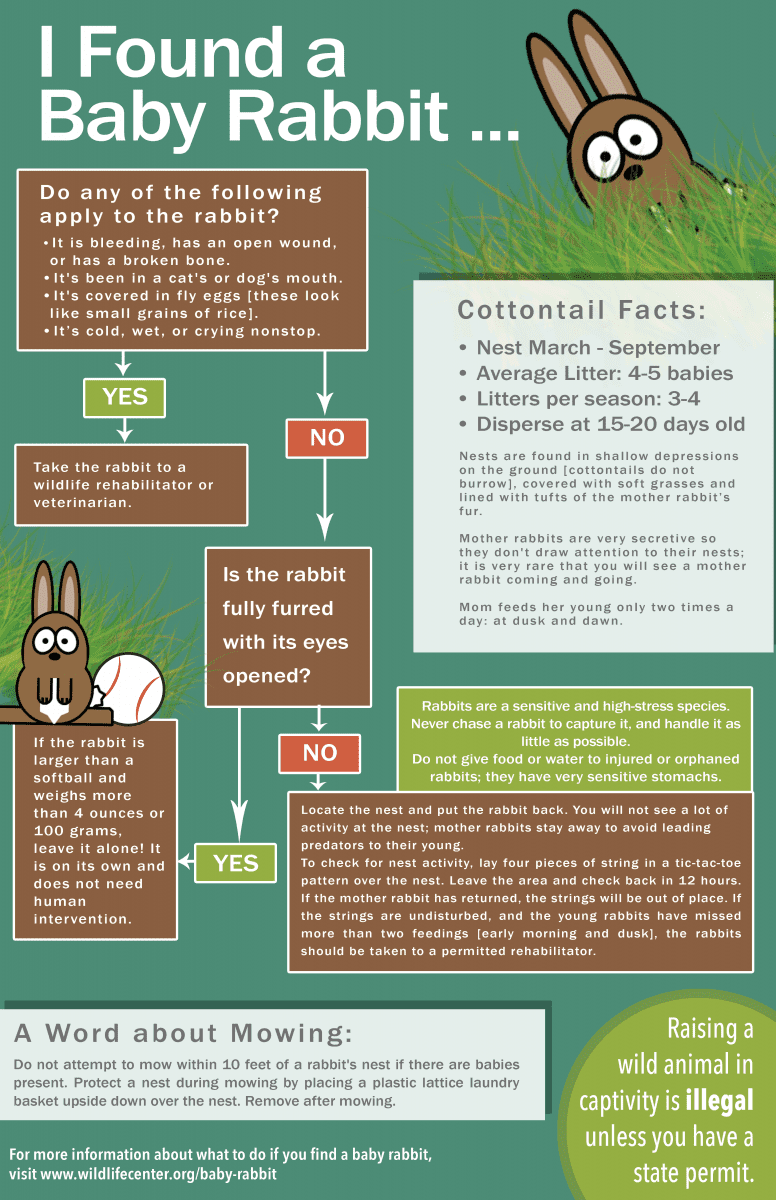
Rabbits are social creatures by nature, meaning that they need socialization to be happy and healthy. Socialization of a 1 Year Old Rabbit involves introducing them to people and other animals, as well as teaching them to trust and be comfortable around new surroundings and experiences.
- Introducing the Rabbit to People: Allow the rabbit to become familiar with people by spending time with them, offering treats, and allowing them to approach the rabbit at their own pace. It is important to not force them to interact, as this can cause them to become scared of people.
- Introducing the Rabbit to Other Animals: Introducing a 1 Year Old Rabbit to other animals can be beneficial as it helps them to learn how to interact with other animals and can also help them to become more trusting of people. However, it is important to ensure that the other animals are friendly and calm to avoid any aggression.
- Teaching the Rabbit to Be Comfortable Around New Surroundings and Experiences: Introduce the rabbit to new environments and experiences gradually. Start by introducing them to familiar objects and then to new environments. When introducing them to new experiences, make sure to provide plenty of treats and make sure that the experience is enjoyable. This will help the rabbit to become more comfortable with new surroundings.
Socialization of a 1 Year Old Rabbit is an essential part of their development and wellbeing. With patience and care, you can help to ensure that your rabbit is happy, healthy and able to interact with people and other animals.
Diet for a 1 Year Old Rabbit
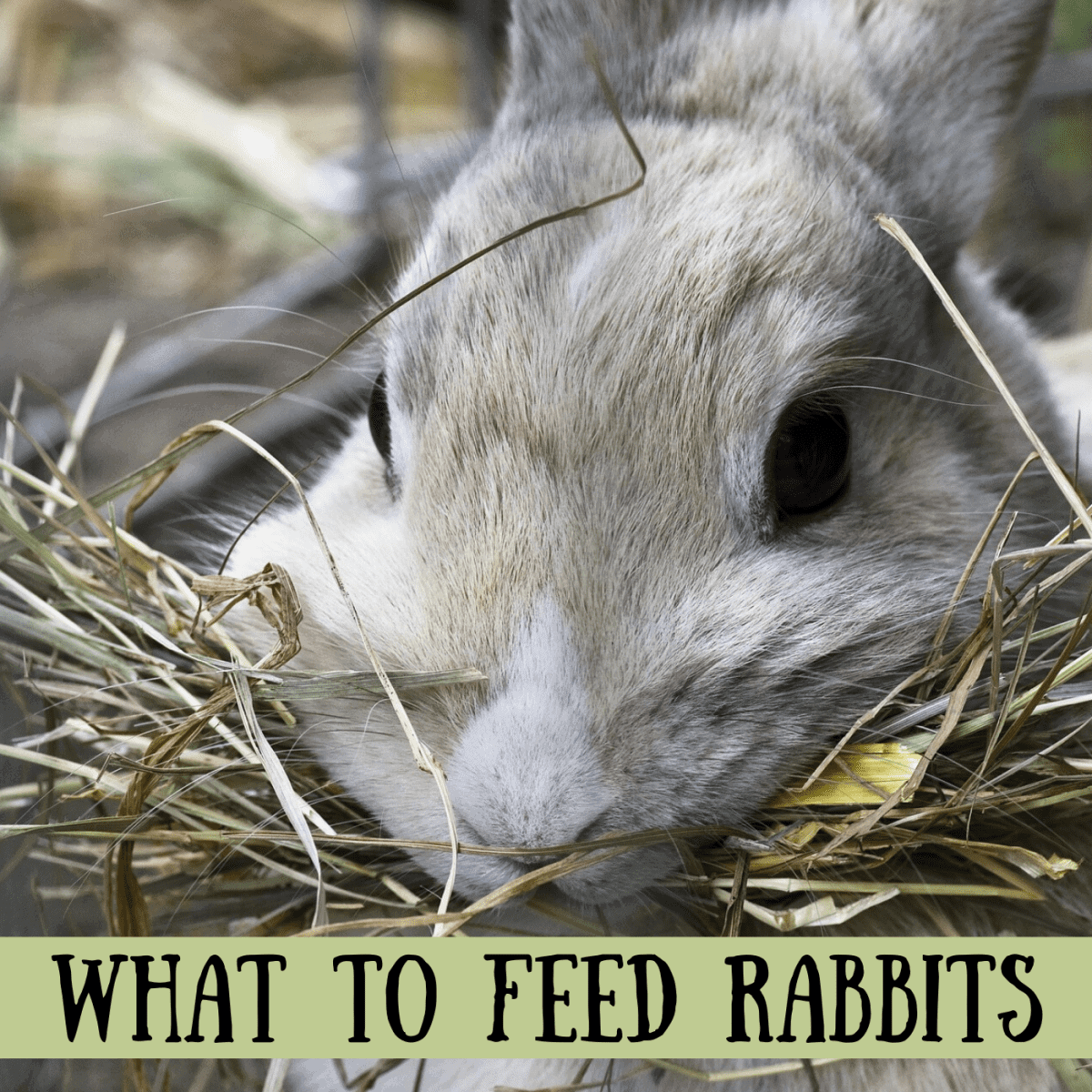
Rabbits require a diet of hay, fresh vegetables, and a small amount of high-fiber pellets. Hay should make up the majority of the diet, with fresh vegetables and pellets making up the remainder. Hay should be provided in unlimited amounts to ensure the rabbit has access to the dietary fiber it needs. Fresh vegetables should be offered in small amounts to provide vitamins, minerals, and other important nutrients. High-fiber pellets should only be fed in small amounts, as they can cause intestinal issues if fed in excess.
It’s important to provide a variety of different vegetables to ensure the rabbit is getting a balanced diet. Carrots, kale, parsley, and other dark green leafy vegetables are all good choices. Other vegetables such as broccoli, celery, and bell peppers can also be offered in moderation. Fresh fruits can be offered as occasional treats, but should not make up a significant portion of the diet.
It’s also important to provide fresh, clean water to the rabbit at all times. A water bottle should be used to ensure that the water is always clean and accessible.
In conclusion, a 1 year old rabbit should have a diet consisting mostly of hay, with fresh vegetables and small amounts of high-fiber pellets making up the remainder. Variety is key, so be sure to provide a variety of different vegetables to ensure the rabbit is getting a balanced diet. Fresh fruits can be offered as occasional treats, but should not make up a significant portion of the diet. Finally, make sure to provide fresh, clean water to the rabbit at all times.
Breeding Considerations for a 1 Year Old Rabbit
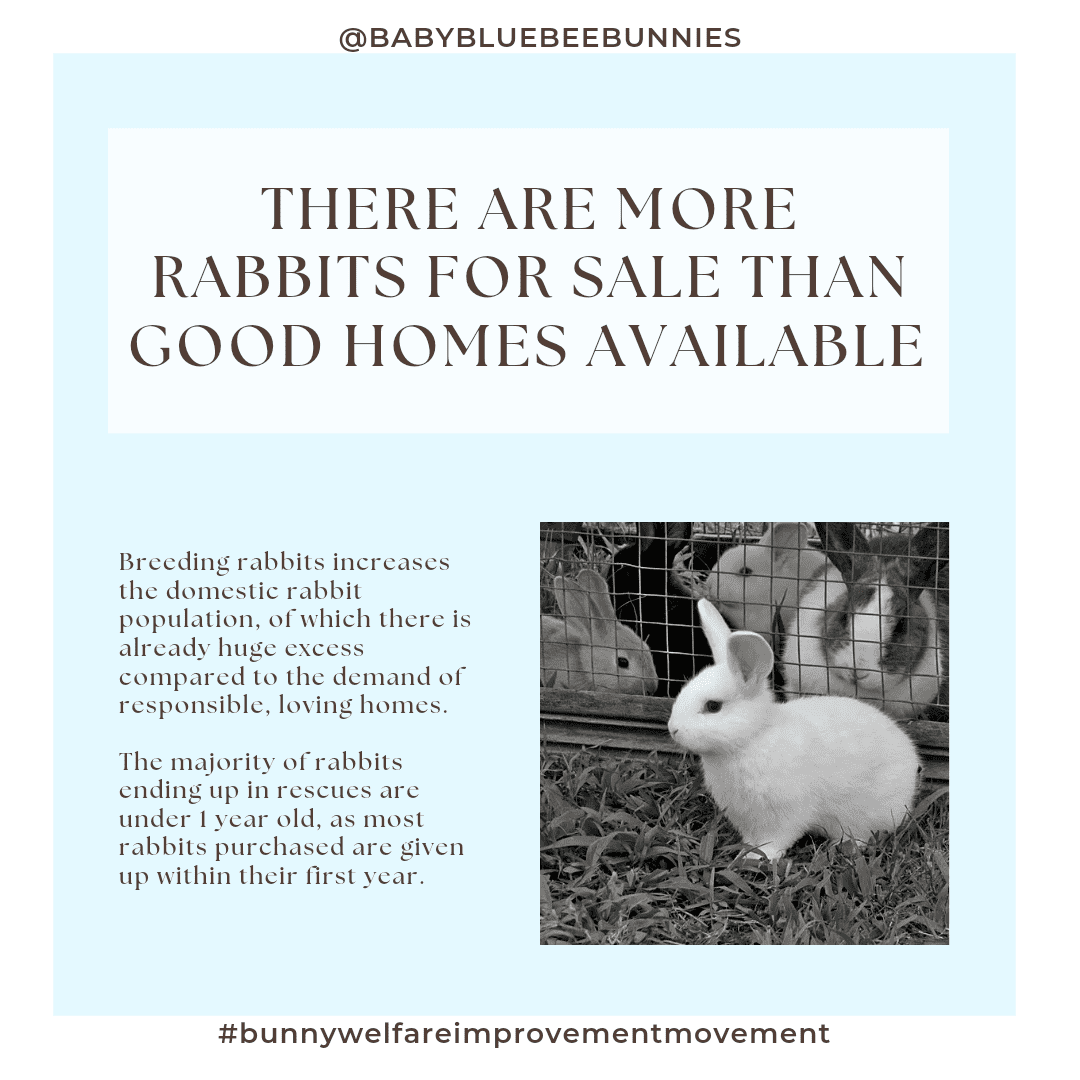
Age: Rabbits reach sexual maturity between 4 and 8 months of age so it is not recommended to breed rabbits that are 1 year old or younger.
Health: Prior to breeding, it is important to have a veterinarian check to make sure that the 1 year old rabbit is in good health and that the reproductive organs are functioning properly.
Weight: The 1 year old rabbit should be at least 2.5 lbs in weight before attempting to breed.
Quality: When selecting a partner for the 1 year old rabbit, it is important to choose one with good genetics to ensure the health and quality of the offspring. If you can find a gene test for rabbits, like the DNA kit for dogs, you’ll be able to know your bunny more.
Space: Rabbits need plenty of room to move around and the breeding area should be spacious and clean.
Nutrition: The 1 year old rabbit should be on a healthy diet to ensure the health of the offspring.
Exercise: Exercise is important for the 1 year old rabbit and its partner in order to keep them physically and mentally healthy.
Housing Considerations for a 1 Year Old Rabbit
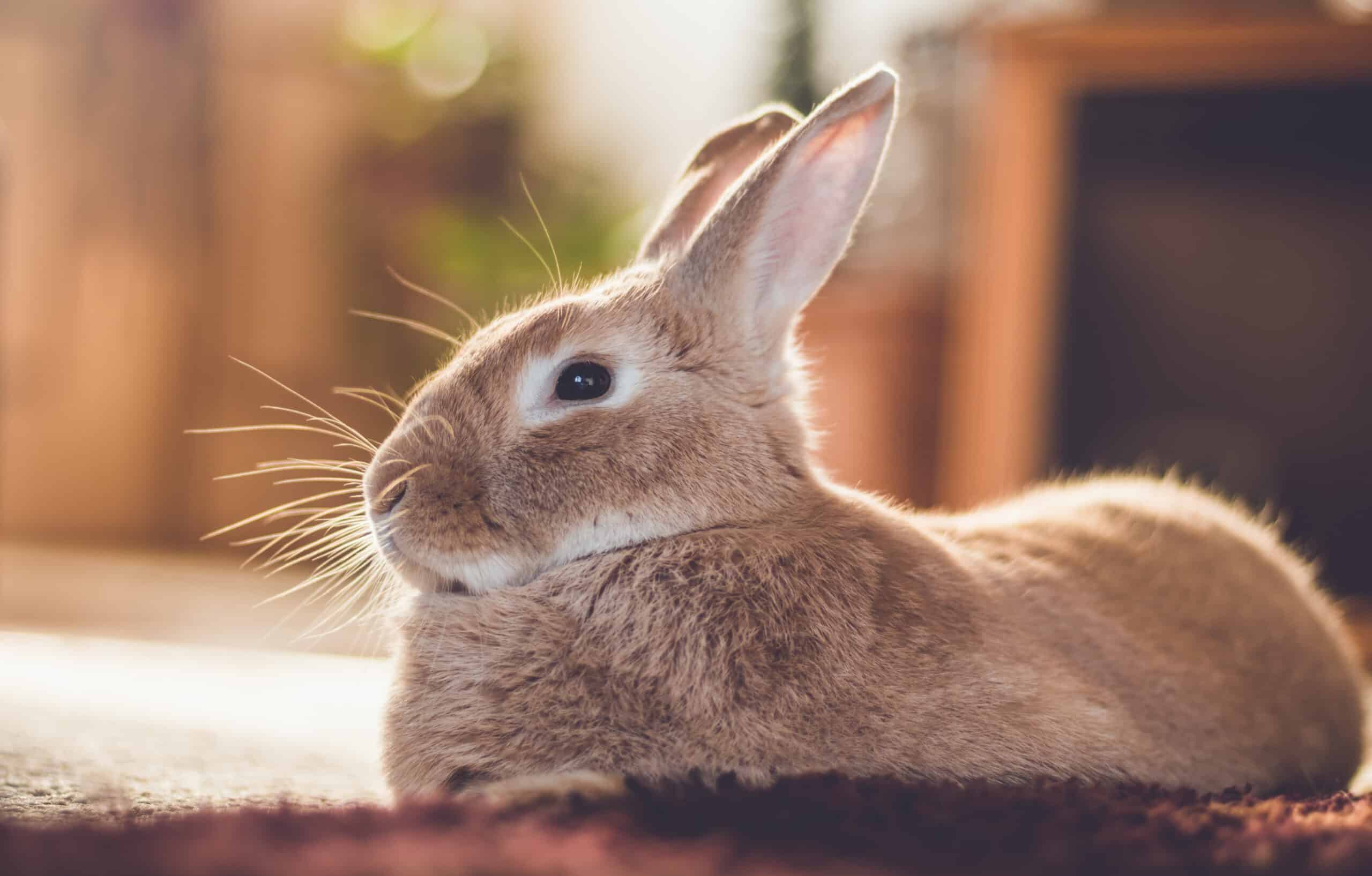
Size: The cage or hutch should be large enough for your rabbit to move around and stretch out. A minimum of 6 square feet is recommended for a single rabbit.
Location: Place the hutch in a cool, dry, and shaded area. Be sure to check the temperature and humidity level often.
Safety: To ensure your rabbit is safe from potential predators, the hutch should be secure and escape-proof.
Materials: The hutch should be made from non-toxic materials such as wood and metal. Avoid plastic, as it can be dangerous for your rabbit.
Flooring: The floor of the hutch should be solid and stable. A plywood or wooden base is best.
Bedding: Use a safe and comfortable bedding material such as straw, hay, or wood shavings. Avoid using newspaper, as it can be dangerous for your rabbit.
Accessories: Provide your rabbit with a few toys and accessories such as a digging box, cardboard tubes, and logs. This will encourage physical and mental stimulation.
Common Health Issues in 1 Year Old Rabbits
- Gastrointestinal Stasis: Gastrointestinal stasis is a common health issue in 1 year old rabbits. It is a condition in which the digestive system is slowed down or stops working altogether. Symptoms include decreased appetite, lack of production of fecal pellets, and bloating. Treatment typically involves administering medications and providing the rabbit with a diet high in fiber.
- Mites: Mites are tiny, parasitic insects that can cause a variety of health issues in 1 year old rabbits. Symptoms of mites include itching, hair loss, and skin lesions. Treatment typically involves administering medications and cleaning the rabbit’s environment.
- Dental Disease: Dental disease is a common health issue in 1 year old rabbits. It is caused by malocclusion, which is a misalignment of the teeth. Symptoms include a decrease in appetite, drooling, and weight loss. Treatment usually involves a dental procedure, in which the teeth are trimmed and realigned.
- Upper Respiratory Infections: Upper respiratory infections are common in 1 year old rabbits. Symptoms include sneezing, discharge from the nose and eyes, and difficulty breathing. Treatment typically involves administering medications and providing the rabbit with a humid environment.
- Intestinal Parasites: Intestinal parasites are common health issues in 1 year old rabbits. Symptoms include weight loss, diarrhea, and anemia. Treatment typically involves administering medications and providing the rabbit with a healthy diet.
It is important to take your 5 month old rabbit for regular check-ups at the veterinarian in order to detect any health issues early on. Prevention is key in keeping your 1 year old rabbit healthy and happy.
Frequently Asked Questions
What Kind of Diet Should a 1 Year Old Rabbit Have?
A 1 year old rabbit should have a diet that consists of hay, fresh vegetables, and a small amount of high-quality pellets. Hay should make up the majority of their diet, as it is a good source of fiber and helps to keep their digestive system healthy. Vegetables should be given as a treat and should make up no more than 10% of their diet, and should include items such as carrots, kale, and spinach. Pellets should be given in small amounts, and should be high-quality and nutritionally balanced. Fresh water should always be available.
How often should I exercise my 1 year old rabbit?
Rabbits need daily exercise for their physical and mental well-being. A 1 year old rabbit should have access to at least 3 hours of playtime and exercise each day. Exercise should include activities like hopping, digging, and playing with toys. Additionally, it’s important to provide your rabbit with plenty of space to roam and explore.
How do I know if my 1 year old rabbit is healthy?
Appearance:
- Shiny coat
- No bald patches
- No signs of skin irritation
- No fleas
- Pink ears
- Bright eyes
Behaviour:
- Eats regularly
- Active and alert
- Shows interest in surroundings
- Exploratory behaviour
- Groom themselves
- Friendly disposition
Weight:
- Should be between 1.5 and 2.5 kg
- Should feel well muscled
- Should have healthy fat reserves around the neck and tail base
What Kind of Environment is Best for a 1 Year Old Rabbit?
A 1 year old rabbit needs a safe, secure environment that provides plenty of space to explore and play. The cage should be large enough for the rabbit to hop around and have some room for toys and other items for enrichment. The cage should have a comfortable bedding material, such as fleece, which can be changed out regularly. The rabbit should have access to fresh, clean water and a healthy diet of hay, fresh greens, and pellets. Additionally, the cage should be kept clean and free of debris and debris, and the rabbit should have plenty of opportunities to play and explore outside of the cage.
Are there any specific health concerns to be aware of when caring for a 1 year old rabbit?
Nutritional Deficiencies – A 1 year old rabbit’s diet should consist mainly of hay, fresh vegetables, and a small amount of pellets. A diet lacking in any of these could lead to nutritional deficiencies.
Gastrointestinal Issues – Rabbits are prone to gastrointestinal issues, such as gastrointestinal stasis, which can occur due to a sudden change in diet or an imbalance in the diet.
Respiratory Infections – Respiratory infections can be caused by viruses, bacteria, and other environmental factors. Signs of respiratory infection include sneezing, coughing, difficulty breathing, and nasal discharge.
Parasites – Rabbits can be infected with internal parasites, such as coccidia and tapeworms, which can cause weight loss and diarrhea. External parasites, such as fleas and mites, can also be a concern.
Fur Mites – Fur mites can cause skin lesions, itching, and hair loss.
Uterine Cancer – Uterine cancer is more common in older rabbits and is usually caused by hormonal imbalances.
Injuries – Injuries can occur due to rough handling, inadequate housing, or improper diet.
Conclusion
One year old rabbits are still relatively young, but they are already playful, curious and full of life. They require special care and attention to ensure they remain healthy and happy for years to come. With the right diet, housing, and health care, these adorable creatures can be an enjoyable pet for many years.
